Education
How Do I Get Started In Property Investment?
This is a question I hear a lot when I discuss our property portfolio with friends but before we go into the details we must remember some very valuable advice that John Fitzgerald from Custodian Wealth Builders gives us.
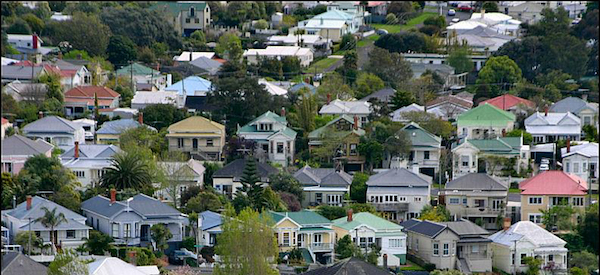
This is a question I hear a lot when I discuss our property portfolio with friends but before we go into the details we must remember some very valuable advice that John Fitzgerald from Custodian Wealth Builders gives us.
To be a successful investor we need to be 3 things
- Positive
- Responsible
- Proactive.
If you think of the opposites to all the above and if you fall into any of those categories then you may have to start asking yourself a very important question – “Do I have the right mindset and approach to be an investor? Having said that I remember when my wife and I were just getting started and at social events I would be like a rooster in the hen house who just found something wonderful to eat. Id be crowing about how wonderful property investing was and telling everyone that they should get into it but was amazed of the negativity of some people as they would tell you every reason in the world why you shouldn’t get into property. (How many of you have had that experience eh)?
To make matters worse when beginning investors start out they may go to a conference or event of some kind and get heaps of great information then come home and get advice from their family and friends who are of course experts in the field…..well offer you so much advice about why you shouldn’t get into investing you’d think they were.
So how do we get started then? The majority of people don’t take this path till later in life when they have built enough equity in their family home. So what happens if I don’t have a home with heaps of equity you ask and you just want to get started now? Well of course this will depend on your current financial position but to get started you of course have to make a deposit for your property and it doesn’t really matter what stage of our lives we are at, we could all use some extra cash and one of the ways my wife and I did that was to investigate some of the many hundreds of ways to make money that a guy called Jamie Macintyre speaks about. In fact after we ordered his free $99 DVD – (oh and ask them for the free e-book too) – and later attended a conference, we actually bought this internet business.
There are many, many different ways to make money once you start educating yourself about how to do it. So wether you make money from your job, supplement your income and speed up the process using some of the different strategies mentioned in the free DVD or e-book or you already have a heap of equity in your current home to start out, you are going to need a deposit. Before the global financial crisis money was very easy to get hold of but things may have been tightened up a little bit since then but don’t despair, you just need to keep looking until you find the right lender.
So let’s say you want to go out and buy your first investment property for about $300,000 so you will need between 10-20% deposit – 30k to 60k. The next question I get asked is “what about all that debt and how can you afford it”? Well to start with its good debt or an asset….not a liability. In other words you are buying something that you know will go up in value over time provided you buy wisely and do your research and of course educate yourself about property investing. Don’t just go and buy the first thing you see or buy it because its close you where you live and you can drive past and admire it every day. Also don’t think that you will be a millionaire overnight because you will need to be committed to buying and holding your properties for as long as you can. You must buy in the right location, with the right amount of land content and at the right time of the building cycle (more about this later).
The main thing to remember is that you will not be paying your investment loan off completely out of your own pocket. You have three sources of income when buying investment properties in Australia (and other countries) and they are;
- Rent
- Tax deductions
- Depreciation
We will start to break these down into more detail in future posts but remember before you start, it’s important that you seek proper financial advice from those who specialise in this area as everyone will have different circumstances. I am not a financial advisor and certainly don’t profess to know everything about property investing but I would love to share my knowledge, my experiences, my mistakes and journey with anyone who wants to learn and take or continue this journey for themselves……to be continued.
All the very best Anthony Shaw
Education
What Makes A GREAT Investment Property?
Why do some property investors seem to be able to continually add to their property portfolio, whereas most buy a few properties and then can’t go any further? One of the main things that separates the really successful investors from the average investors is the properties they choose to buy.

Why do some property investors seem to be able to continually add to their property portfolio, whereas most buy a few properties and then can’t go any further? One of the main things that separates the really successful investors from the average investors is the properties they choose to buy.
Let’s have a look, then, at what makes a great residential investment property.
Firstly, what are the main objectives of property investors? The most common objective is something like this:
“To create a passive income stream to enable me to stop working if I wanted to… to enable me to retire comfortably so I can spend my time doing what I want.”
An ancillary to this primary objective would be to accomplish this without demanding massive risk or huge effort / stress in managing the properties.
Assuming that these are the objectives, then the following are qualities to look for in a superior investment property:
1. High income
- If your property covers all costs of ownership (the main ones being mortgage interest, rates, insurance and maintenance), it is not going to place great financial strain on your existing cashflow.
- If you want to grow a substantial portfolio, you can not have properties that place a strain on your cashflow, because that limits how many you can own.
- Over time, when rents increase, a property that covers its costs today, will produce a positive cashflow in the future, hence helping to grow your passive income stream.
2. High Tenant Demand Location:
- If the rent looks high compared to the price of the property, but it is located in an area that is unappealing to tenants, you will have periods of vacancy, which equates to periods of sleepless nights, which equates to “I’ve had enough of this property investment game – I’m out!!”…
- These frustrations are not what you need if you want to be successful!! If the property is in an area that is always appealing to tenants, you will easily be able to replace tenants when they leave… this amounts to sleeping at night, which we like!!
3. Fee Simple Title:
- A fee simple title is the best legal tenure you can get. With this type of property, you are in control of your asset. For example, you can improve it, extend it or alter it, as you please, without consulting with neighbours, Body Corporates (as with apartments) or common leaseholders (as with cross-lease titles), subject to conforming with the local council rules, of course.
- This is important because people (including us Kiwis) LOVE control. The more control and flexibility you have, the more control you have over your future and your choices, the more appealing the property is to LOTS of people.
- Therefore it will be easier to sell, and more likely to sell at a premium price, when it comes time to sell (including if you need to sell in a hurry, heaven forbid!). And there almost ALWAYS comes a time when you will want to sell.
4. Traditional Construction:
- People do not like things they do not understand. Investors especially like the tried and tested… they don’t want to experiment.
- Therefore, to make sure your property will appeal to the broadest range of potential tenants and purchasers in the future, make sure it is built in the traditional way… weatherboards, iron or tiled rooves, bricks… this is what us kiwis feel confortable with.
- If it has a 1990s-style monolithic style cladding system, many people will simply not consider it… don’t give yourself this disadvantage when it comes time to sell!!
5. Difficult to Replace / In Short Supply:
- If you are going to own an asset for a long time, you might as well own one that is most likely to increase in value faster than most… and this comes down to good old supply and demand.
- In a decent sized city, with an increasing population, demand for housing is increasing over the medium to long term. But it is much easier to increase the supply of some kinds of housing, than others, in order to meet this increasing demand.
- For example, in central or city fringe locations, the supply of apartments and townhouses is likely to increase dramatically in order to satisfy the demand for additional housing in these locations. This eases pressure on price increases (supply increasing to meet demand).
- On the other hand, the supply of free-standing houses in these locations, is really not increasing by much – IF AT ALL!! When you have demand increasing, and supply largely static, this tends to produce strong increases in prices.
- Therefore I recommend buying free-standing houses, rather than apartments or townhouses.
IN SUMMARY
If you can buy a free-standing property, with a fee simple title, in a high demand location, built using time-tested construction methods, with a strong cashflow (say 7.5-8.0% gross yield or even more if possible), then you are in PROPERTY INVESTMENT HEAVEN!!
Now don’t get me wrong – I never said it was EASY to find these types of properties… and you may have to compromise one or more of these criteria, but if it was easy, EVERYONE WOULD BE RICH!!! And last time I checked, not everyone is rich…
So now for my shameless plug for a GREAT investment property that I happen to be selling!!!
Education
Important Facts about Minor dwellings
Building a minor dwelling on an already existing title significantly boosts the return of a property through both rental earnings and capital appreciation however an awareness of council regulations is essential.
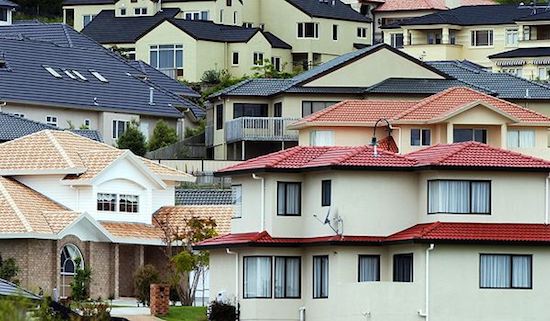
Its first prize win at last year’s Master Builder ‘House of the Year’ Awards with a home in the $250 000-and-under category has firmly established Investor Homes as an exceptional New Zealand building company.
While gaining success as the only wholesale building company in New Zealand, Investor Homes has also drawn recognition from its minor dwellings.
Minor dwellings are secondary units which can be built on already existing titles.
Once called ‘granny flats’ and built for extended family or aging parents, minor dwellings today are a modern and cost-effective alternative to pricey subdivisions while providing an excellent investment opportunity.
Whereas subdivisions can easily cost $70 000 per lot, minor dwellings provide a way around this.
Stuart Shutt, director of Investor Homes, has seen the ‘two-house return for the price of one-and-a-half’ on numerous projects, such as a recently completed minor dwelling on the rear site of a rental home in Henderson, West Auckland.
“After purchasing a four-bedroom house for $242K, my client spent $15K renovating it and rented it out for $400 a week.
At the same time he invested in building a three-bedroom minor dwelling on the property for $150K (turn-key including all council costs) which he rented for $340 a week.
In total $407K was spent on the property. The value of the property went up to $500K in six months with a build time of only ten to twelve weeks.” So a $93k capital gain and a positive income!
Building a minor dwelling on an already existing title significantly boosts the return of a property through both rental earnings and capital appreciation however an awareness of council regulations is essential.
Building a minor dwelling in a suburb of Manukau or North Shore City, for example, is possible as long as it only takes up 60m², or 65m² in West Auckland.
Investor Homes encourages people to act on potential investment based on numbers and sound advice that covers each aspect of minor dwelling projects, from location to products and plans.
Offering a huge range of minor dwelling plans and prices, some of which can be viewed on their website http://www.investorhomes.co.nz, Investor Homes also offers informed investment advice concerning minor dwelling projects.
“We recently worked with a woman living on a property with a sloping backyard that was hard to mow and difficult for the kids to play on,” says Stuart.
“We created a minor dwelling strategy that saw something which was costing her money turned into a goldmine.
“Minor dwellings a very safe form of development – you can sell it for a profit, or if for some reason you can’t sell, you’re left with a positive income.”
Education
Transition under the Unit Titles Act 2010
Once the UTA 2010 commences, there are transitional arrangements that apply for 15 months. This is a short summary of the options, useful for a body corporate secretary/manager.

Once the UTA 2010 commences, there are transitional arrangements that apply for 15 months. This is a short summary of the options, useful for a body corporate secretary/manager.
- Body corporate rules – a body corporate can either keep its existing Schedule 2/Schedule 3 rules or elect for the rules to be replaced with the operational rules under the UTA 2010 (awaited in Regulations) and section 138 (which contains the new repair and maintenance responsibilities). In making this choice a body corporate will need to consider:
* the role of the secretary – under the UTA2010 now one of the service contractors to the body corporate
* committee make-up, appointment and procedures – is the body corporate ready for the change?
* AGM procedures – again, is the body corporate ready for the change?
* existing body corporate rules – are the existing rules all covered in the UTA 2010 and new Regulations, do the existing rules remain appropriate of not, are there any ultra vires issues that need resolving in the rules? A review of the rules will be needed and consideration given to what, if any, additional rules should be put in place.
* repair and maintenance – is the body corporate ready for the additional responsibilities under section 138 and has it been budgeted for? - Long term maintenance plan – a long term maintenance plan will be required at the end of the transitional period. The only decision therefore is when to start. A body corporate might consider delegating this to the committee to get it ready in time.
- Long term maintenance fund – a body corporate has a choice whether to set up this fund or not. The UTA 2010 will require it at the end of the transition unless a body corporate has opted out by special resolution.
There are many other provisions that need to be considered when the UTA2010 is first passed. In following posts I’ll cover this, including what would be a useful agenda for a first AGM.
In terms of these transitional arrangements, watch the timing. A first AGM will need to be convened within 6 months of the UTA2010 being passed. The transitional arrangements above apply for 15 months from the first day of the month following the UTA2010 commencing. In general body corporate meetings are needed once every calender year and not later than 15 months after the previous one. If the decisions above are not covered in the first AGM then the following AGM might be too late and the default position will apply, or an extraordinary general meeting could be convened to get the necessary resolutions passed.
-
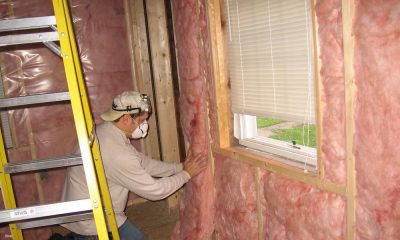
 Management5 years ago
Management5 years agoHome Insulation Requirements
-

 Investment5 years ago
Investment5 years agoAnother date NZ property investors are dreading
-

 Accounting & Finance5 years ago
Accounting & Finance5 years agoLow Interest Rates Winners and Losers
-

 Build5 years ago
Build5 years agoHow to Choose and Purchase a Suitable Property to Subdivide
-
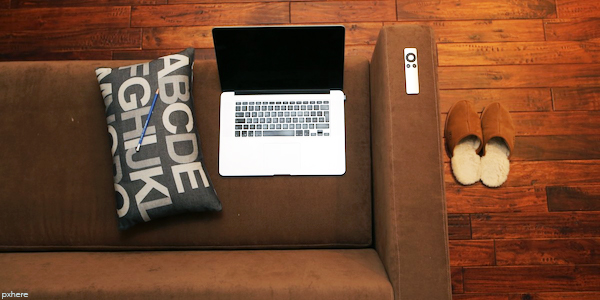
 Management6 years ago
Management6 years agoAttracting More Business Travellers To Your Auckland Airbnb Property
-

 Investment6 years ago
Investment6 years agoWould You Be a Landlord in 2018?
-

 Tenants6 years ago
Tenants6 years agoCoworking Countdown – 4 Things to Prepare Before You Move In
-
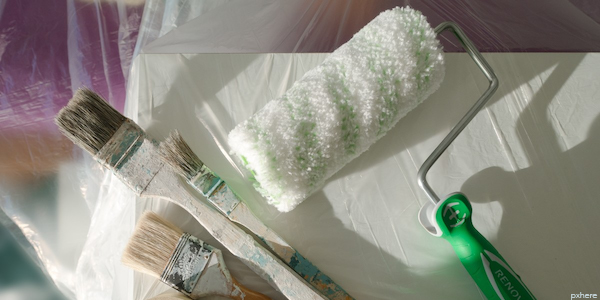
 Renovations6 years ago
Renovations6 years agoFive easy steps to boost the appeal of your home




